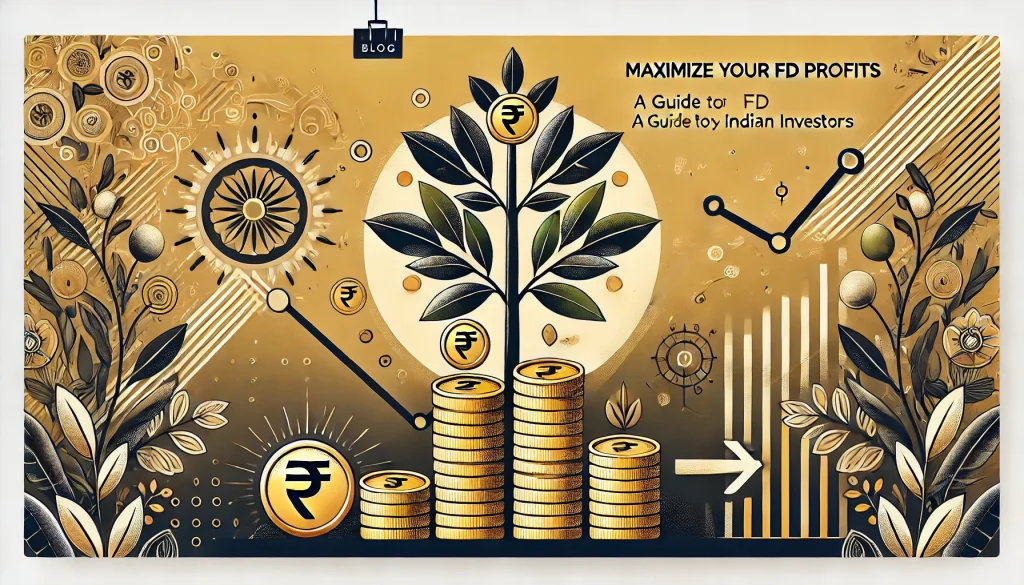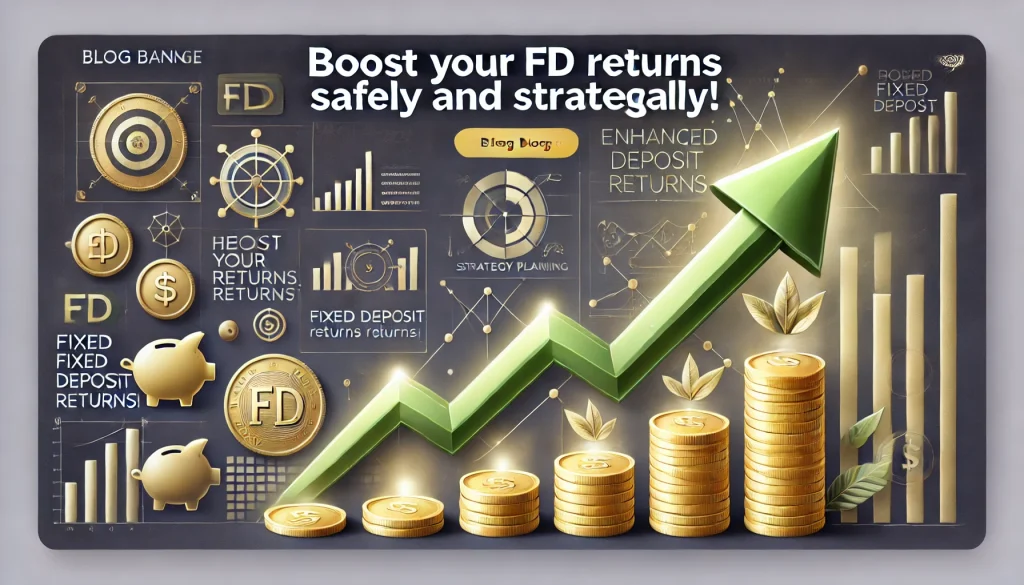
When it comes to secure and stable investment options, fixed deposits (FDs) have long been the preferred choice for Indian investors. FDs offer a guaranteed return, making them a low-risk investment avenue, ideal for those looking to preserve their capital while earning a steady income. However, with numerous banks and financial institutions offering FDs, choosing the best-fixed deposit can take time and effort.
In this blog, you will go through the process of selecting the best-fixed deposit, ensuring you make informed and prudent financial decisions.
How to Choose the Best Fixed Deposit?
1. Interest Rates and Tenure
One of the primary factors to consider when choosing a fixed deposit is the interest rate offered by the bank or any financial institution. Look for competitive interest rates that align with your financial goals. Additionally, consider the tenure options available, as longer tenures often yield higher returns.
2. The Credibility of the Institution
Ensure that you invest your money in a reputable and trustworthy institution. Check the credit rating and financial stability of the bank or NBFC (Non-Banking Financial Company) before investing.
3. Fixed Deposit Schemes
Explore the various types of fixed deposit schemes available, such as cumulative FDs, non-cumulative FDs, and tax-saving FDs. Each scheme has unique features, so choose the one that best suits your financial requirements.
4. Minimum Deposit Amount
Different banks have different minimum deposit requirements for opening an FD account. Select an institution with a minimum deposit amount that fits your budget.
5. Premature Withdrawal Policy
Life is unpredictable, and there might be situations where you might need to withdraw your FD prematurely. Understanding the penalty and rules associated with premature withdrawals will help you make an informed decision.
6. Frequency of Interest Payout
Some institutions offer monthly, quarterly, or annual interest payouts, while others reinvest the interest. Evaluate your cash flow requirements and choose the frequency that aligns with your needs.
7. Tax Implications
Consider the tax implications on the interest earned from your FD. Always look for tax-saving FDs or be prepared to include the interest as part of your taxable income.
8. Loan against FD
Some banks provide the option of availing loans against your FD. You can get 90% of the total FD amount, which can be helpful during emergencies. Do your research and analyse the banks of NBFCs before investing.
How to Choose the Best Fixed Deposit for Different Age Groups?
1. For Young Professionals and Beginners
As a young professional or a beginner investor, your primary focus should be on building a stable financial foundation. Consider the following aspects:
- Short to Medium Tenure – Opt for FDs with shorter to medium tenures, as they allow flexibility and access to your funds sooner if needed.
- High Liquidity – Look for FDs that offer higher liquidity with lower penalty charges for premature withdrawals.
- Reinvesting Interest Option – Choose the reinvestment option to benefit from compounding interest, which can significantly boost your returns over time.
- Tax-Saving Fixed Deposit – If you fall under the taxable income bracket, consider investing in tax-saving FDs to avail tax benefits under Section 80C of the Income Tax Act.
2. For Middle-Aged Investors
As a middle-aged investor, your focus shifts toward balancing risk and returns while securing your financial future:
- Balanced Tenure – Diversify your investments by combining short, medium, and long-term FDs to meet different financial goals.
- Consider Senior Citizen FDs – If you belong to the senior citizen category, explore FDs tailored to your age group, offering higher interest rates and additional benefits.
- Interest Payout Frequency – Choose interest payout frequency based on your retirement plans and regular income requirements.
3. For Retirees and Senior Citizens
Retirees and senior citizens seek stability and regular income from their investments:
- Longer Tenure FDs – Invest in longer-tenure FDs to ensure a steady source of income during your retirement years.
- Regular Income FDs – Opt for FDs with regular interest payouts to supplement your pension and cover daily expenses.
- Safety of Investment – Prioritise the safety and security of your investment by choosing reputed banks or financial institutions.
Tips for Maximizing Returns on Fixed Deposits
1. Ladder Your FDs
Implement the FD laddering strategy, where you invest in multiple FDs with different tenures to ensure liquidity and capitalise on changing interest rates.
2. Renewal or Reinvestment
At the end of the tenure, consider reinvesting your FDs rather than withdrawing them to continue earning interest.
3. Keep an Eye on Interest Rate Trends
Monitor the market and economic conditions to lock in your FDs when interest rates are favourable.
4. Avoid Breaking FDs Prematurely
Premature withdrawal leads to reduced returns as you need to pay a certain amount as a penalty. Try to avoid it unless it’s necessary, as it results in reduced returns.
Conclusion
Choosing the best-fixed deposit is a crucial decision that can significantly impact your financial growth and security. By considering essential factors such as interest rates, tenure, credibility, and tax implications, you can make an informed choice tailored to your financial goals. Remember to explore different types of FD schemes, maximise returns with smart strategies, and prioritise safety while investing. With this comprehensive guide, you are now equipped to confidently navigate the world of fixed deposits and make the most of your investment journey.
FAQs
Yes, investing in FDs is considered safe, as they offer guaranteed returns and are insured by Deposit Insurance and Credit Guarantee Corporation (DICGC) up to ₹5 lakhs per account.
The ideal tenure depends on your financial goals. For short-term needs, opt for 6 to 12 months; for long-term goals, consider 3 to 5 years tenures.
Yes, NRIs (Non-Resident Indians) can open NRE (Non-Resident External) or NRO (Non-Resident Ordinary) fixed deposit accounts in India
Tax-saving FDs under Section 80C of the Income Tax Act offer tax benefits for investments up to ₹1.5 lakh
The frequency of interest payouts can vary from monthly to annually, depending on the FD scheme and your preference.
Yes, but there may be penalties associated with premature withdrawals. The exact penalty amount varies among banks and depends on the remaining tenure.
Disclaimer
This article is solely for educational purposes. Stable Money doesn't take any responsibility for the information or claims made in the blog.


